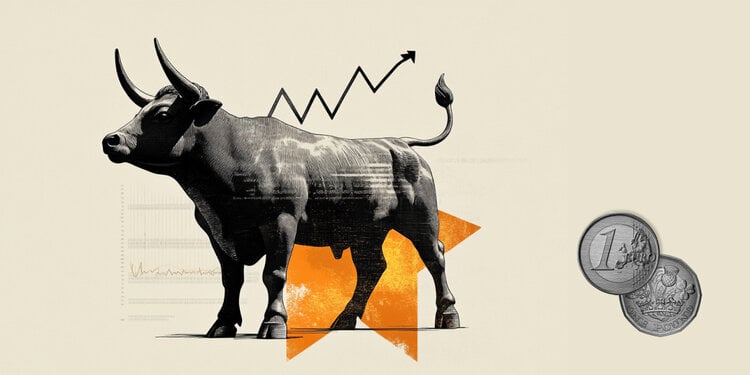- EUR/GBP snaps three-day losing streak, the cross rebounds after hitting its lowest level since mid-June on Wednesday.
- The Euro finds modest support even as the US-EU trade deal clouds sentiment.
- German CPI rose 0.3% MoM in July, slightly above forecasts, while annual HICP slipped to 1.8%.
The EUR/GBP cross edges higher on Thursday, snapping a three-day losing streak and rebounding from the seven-week low hit on Wednesday. The recovery comes despite broader weakness in both the Euro and the British Pound against the US Dollar (USD), with the Euro gaining the upper hand as expectations grow that the Bank of England (BoE) will cut interest rates at its next policy meeting on August 7.
At the time of writing, the EUR/GBP cross is hovering around 0.8647 during the American trading hours, having erased all of its losses from the previous session. The pair is up roughly 0.35% on the day, as the British Pound is trading under pressure against its major peers, while the Euro finds modest support despite facing persistent drag from uncertainty surrounding the recently announced US-EU trade deal.
Earlier on Thursday, preliminary inflation data from Germany delivered a mixed signal for markets. According to Destatis, the Consumer Price Index (CPI) rose by 0.3% MoM in July, slightly above the 0.2% forecast and an improvement from June’s flat reading. On an annual basis, CPI held steady at 2.0%, in line with expectations. Meanwhile, the Harmonized Index of Consumer Prices (HICP) — the European Central Bank’s (ECB) preferred gauge — increased by 0.4% MoM, matching forecasts and accelerating from the 0.1% recorded in June. However, the annual HICP eased slightly to 1.8% from 1.9%, falling below both the ECB’s 2% target and market consensus.
Separately, Eurostat reported that the Eurozone Unemployment Rate edged down to 6.2% in June, better than the 6.3% expected. The prior month’s figure was also revised lower to 6.2%, highlighting continued resilience in the region’s labor market despite broader macroeconomic headwinds.
Expectations that the BoE will cut interest rates at the upcoming August 7 policy meeting have surged, with market pricing now reflecting an 80% probability that the BoE will lower its benchmark rate from 4.25% to 4.00%, amid growing signs of economic weakness. Recent UK GDP figures showed back-to-back monthly contractions, fueling concerns over a potential recession. Additionally, softening labor market data — including falling payroll numbers, rising unemployment, and easing wage growth — have reinforced the view that the central bank may need to act sooner rather than later.
Looking ahead, market focus will shift to the Eurozone’s preliminary inflation data for July, due on Friday. A stronger-than-expected print may offer the Euro some support, while softer figures could reinforce a cautious European Central Bank (ECB) stance amid lingering growth concerns across the bloc.

